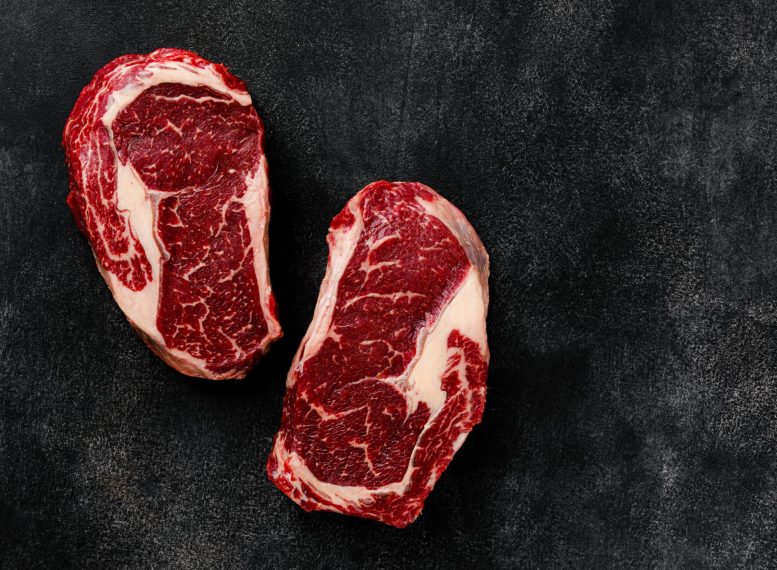New Study Shows Definitive Victor for Muscle Growth: Animal vs. Plant Protein

Recent studies indicate that meals containing lean beef create a higher muscle protein synthesis when compared to vegan meals, even when their protein content is the same. This finding highlights the importance of the choice of protein source when it comes to muscle maintenance in older adults.
It is well-established through numerous studies that dietary protein consumption plays a vital role in muscle protein synthesis, which is key to the development and maintenance of skeletal muscle mass. Newly discovered evidence implies a significant disparity in the effectiveness of plant-based and animal-based protein sources in promoting muscle growth and maintenance. This difference is primarily due to variations in protein quantity and quality, along with different levels of essential amino acids (EAA) found in these food sources.
Newly published research in the Journal of Nutrition reports on one of the first randomized controlled trials to compare the anabolic properties of whole protein foods when consumed as part of mixed meals. The study found that a whole-food omnivorous meal with lean beef led to greater post-meal muscle protein synthesis rates compared to a whole-food vegan meal in older adults. In fact, researchers observed a 47% higher muscle protein synthesis rate after consuming the omnivorous meal with lean beef, as opposed to the whole food vegan meal which provided an equal amount of protein from plants.
Luc van Loon, a Ph.D. professor of Physiology of Exercise and Nutrition at Maastricht University Medical Center and the chief investigator of the research, notes that this study set out to understand the impact of consuming whole protein foods as part of a normal meal. He emphasizes the significance of this research in light of the importance of maintaining lean body mass as we age and the growing interest in vegetarian and vegan diets.
Based on previous studies comparing the intake of different protein sources, researchers estimated 16 participants would be required to complete the study and see a possible variance in the muscle protein synthesis rates after consuming the two separate meals. Sixteen healthy, older adults took part in the clinical trials, consuming two test meals on separate days. One meal consisted of lean ground beef, potatoes, string beans, applesauce, and herb butter. The other meal was plant-based, containing quinoa, soybeans, chickpeas, and broad beans.
Van Loon explains that the aim was to study the impact of meal consumption on muscle protein synthesis in older adults, given the increasing global concern about age-related loss of muscle mass and strength.
Prior to the experimental trial days, all participants abstained from sports, strenuous physical activity, and alcohol consumption. Post-meal plasma amino acid profiles and muscle protein synthesis rates were compared, where researchers noted a 47% increase in muscle protein synthesis rate after consuming the lean beef meal. “Interestingly, plasma leucine, an essential amino acid particularly important for muscle protein synthesis, was 139% higher in participants after they consumed the omnivorous meal with lean beef,” shared Philippe Pinckaers, lead author of the study. “This study demonstrates the potential impact of the food matrix, and the significance of differences between beef-containing and vegan meals in amino acid bioavailability and biofunctionality,” he added.




